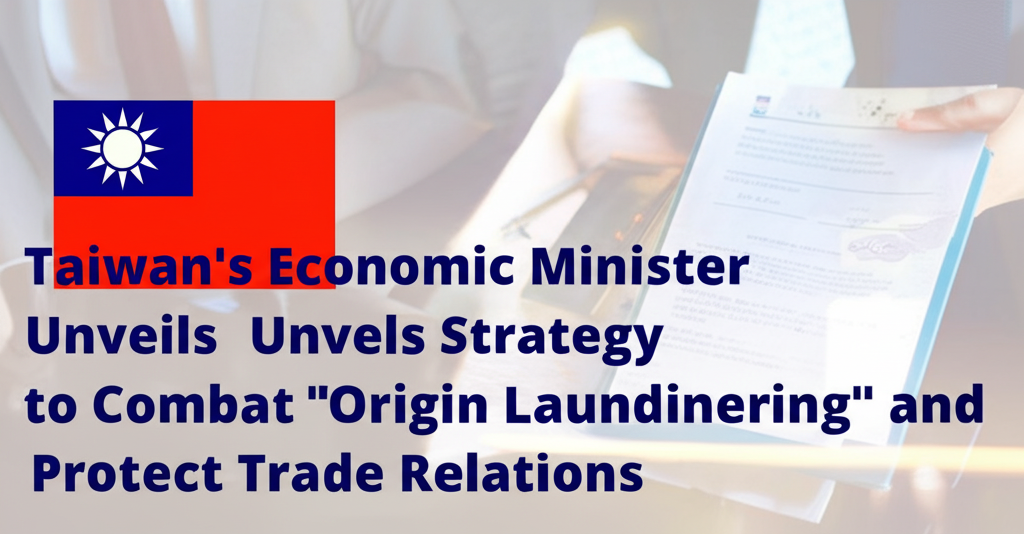Taiwan's Economic Minister Unveils Strategy to Combat "Origin Laundering" and Protect Trade Relations
Tackling Trade Deception: Taiwan Implements Measures to Safeguard Against Misrepresented Origins and Preserve Competitive Edge

Taipei, April 10 – In a move to fortify its trade relationships and address concerns over deceptive trade practices, Taiwan's Economic Affairs Minister Kuo Jyh-huei (郭智輝) has announced a five-pronged strategy to combat "origin laundering." This initiative comes as a key component of ongoing U.S.-Taiwan tariff negotiations.
Speaking before the Legislative Yuan, Minister Kuo outlined the following measures:
- Enhanced monitoring of goods originating from China.
- Proactive communication with Taiwanese businesses.
- Establishment of a blacklist for violators.
- Imposition of stricter penalties for non-compliance.
- Application of anti-dumping tools.
These measures aim to prevent the circumvention of rules of origin, targeting both goods redirected to Taiwan and those rerouted through Taiwan to the United States. The goal is to prevent trade activities that could potentially "affect the U.S.' judgment of Taiwan."
"Origin laundering" involves companies falsely representing a product's country of origin, often to evade tariffs or trade restrictions. This can undermine fair trade practices and damage international relationships.
The announcement was made during a session of the Economic Committee, which also included briefings from Agriculture Minister Chen Junne-jih (陳駿季) and Deputy Finance Minister Lee Ching-hua (李慶華) on trade-related challenges. The special session was convened to address how Taiwan plans to sustain competitiveness in key sectors in light of potential shifts in global tariff policies.
During the interpellation session, lawmaker Lai Jui-lung (賴瑞隆) of the ruling Democratic Progressive Party (DPP) inquired about the government's preparedness to navigate potential economic turbulence arising from new tariff policies. Minister Kuo responded by highlighting Taiwan's "highly competitive" position due to its industrial strengths, as many exporters to the U.S. face a uniform 10 percent tariff rate. He emphasized that Taiwan and the U.S. share a "mostly complementary" trade relationship in technology and other sectors.
Furthermore, Minister Kuo announced that Taiwan's Presidential Office and the Cabinet would launch consultations with industry groups, starting on Thursday afternoon, to gather feedback and identify areas for improvement. The government remains committed to collaborating with the private sector to navigate the evolving trade landscape.
